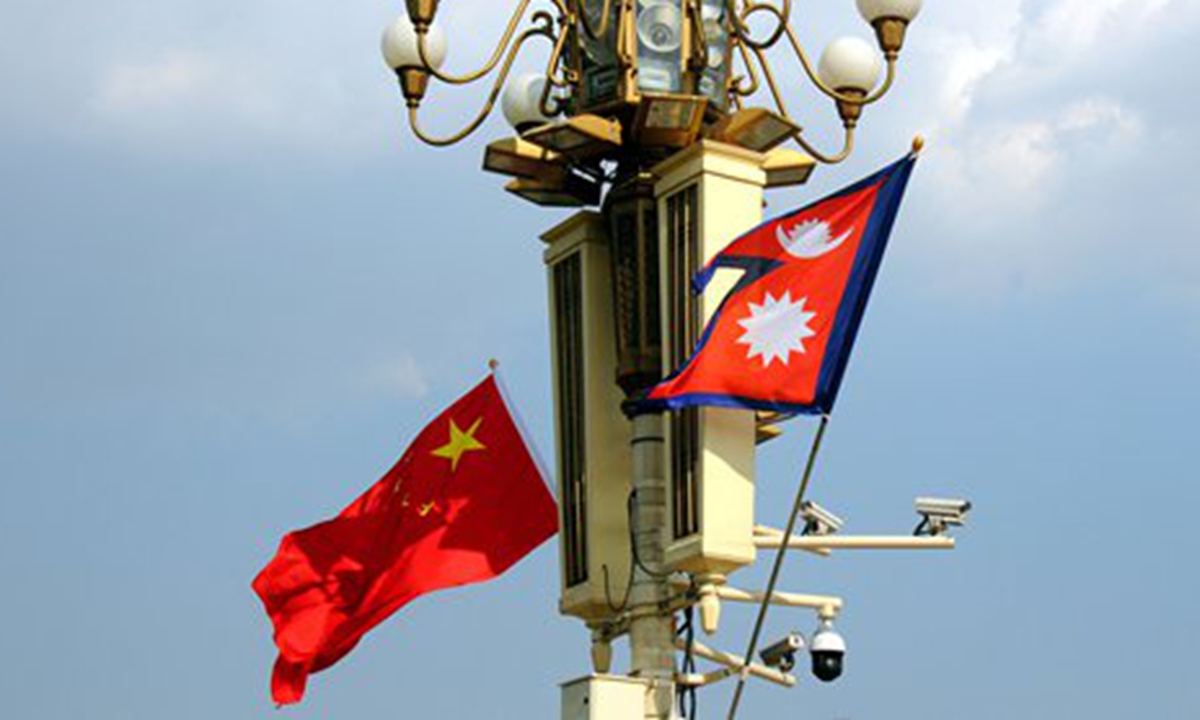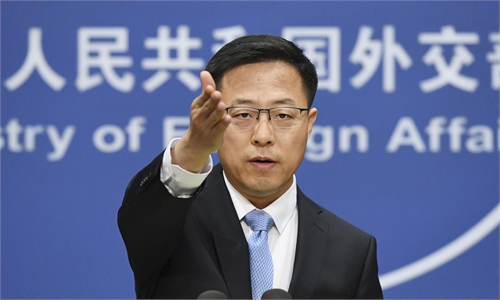
Photo: VCG
Editor's Note:China's ruling Communist Party of China (CPC) just celebrated its centennial on July 1. With its success in leading China from a poor country into a globally strong state, what can China's neighboring countries learn from the CPC's experience? Krishna Bahadur Mahara (Mahara), former speaker of the House of Representatives of Nepal, shared his insight with the Global Times (GT) reporter Hu Yuwei.
GT: As a veteran of the Nepal Communist Party (NCP), what kind of dealings have you had with the Communist Party of China (CPC) in the past? On the occasion of the 100th anniversary of the founding of the CPC, how do you evaluate the performance of the CPC over the past 100 years?
Mahara: I have played a special role to establish a good relationship with China. In the year 2008, I was the first from my party to begin meeting with International Department of CPC Central Committee. Since then many NCP leaders, members and myself have been trying to establish healthy relationships with CPC. The CPC has also made positive responses toward this move made by me and NCP members. During the talks over the agreement of Belt and Road Initiative, I participated as a point person of Nepal government. I led the Nepal government team to the first BRI summit that was held in Beijing.
China has made tremendous progress in the past 100 years. The first people's movement from 1921 to 1949 was led by CPC. At that time, Chairman Mao Zedong took China from dark and old to the bright and modern. Since then, China never looked back. Secondly, CPC led by leader Deng Xiaoping took poor China into a relatively rich China. In this period China's economy began to grow rapidly and continuously. In the present time, CPC led by Xi Jinping, General Secretary of CPC Central Committee, is making China a globally strong country. Rises in living standard of the people, control over COVID-19, quality goods production and celebration of CPC's 100th founding anniversary all over the nation is an excellent example of its biggest achievement on the domestic sector, which can be referenced by neighboring countries and beyond.
GT: What experience do you think the CPC and the Communist Party of Nepal can exchange in improving the Party's governance capacity?
Mahara: CPC and NCP (Maoist Center) must have good relationship. For that, both need to exchange thoughts, knowledge of revolutionary history, geography of countries, socially, economically and culturally. We also need to exchange our development of thoughts, leadership system and team work. In the past many NCP members and other political party representative got chances to visit China, witness its development model. They went to visit some important and historic places, and got chances to study in party school. Scholarships offered to many thousands of Nepali students are its examples of improving party-to-party relations.
GT: With China's rapid development, some Westerners hype China and the Communist Party of China as "threats". How do you see those voices? Where does such misunderstanding come from?
Mahara: Capitalism always sees threats of socialism. Those who always criticize and try to pull China down are those who believe in capitalism, and these misunderstanding come from them. Some Western media and political analysts always try to obstruct China's development. Monopoly of capitalism is their aim, and those people who criticize are protected and fed by monopoly capitalists.
GT: Many Western scholars predicted the "collapse" of the CPC, and some had also predicted that the rule of the CPC in China won't last for 70 years. But those predictions turned out to be wrong. Where do you think the resilience of the CPC comes from?
Mahara: CPC well understood Chinese characteristics, peoples' needs and always work for Chinese people. CPC has tried to understand deeply the contradictions of society and solved the contradictions successfully.
GT: In your view, can China's success in sticking to the path of socialism with Chinese characteristics be used as a reference for other countries in the world?
Mahara: Socialism is the study of science that tries to uplift people's living standards. China with its capabilities has implemented socialism with its characteristics and has become successful, thus it has become good example to other countries. China can introduce its development beliefs and experience to others. Other countries can also incorporate those beliefs into the characteristics of their country. Nepal should also follow such strategy.
GT: In the process of coping with COVID-19, the CPC's "people-centered" governance concept has been further highlighted, and the CPC has led the people to complete the task of eradicating absolute poverty. How do you evaluate the CPC's concept of governing for the people?
Mahara: In China, CPC is responsible for its people and Chinese people are happy with their government. Cooperation between government and its people is very good. Working together during COVID- 19 lockdown is an example of how they work together.
GT: China believes that countries with different political systems can coexist, and in the process of development, China also emphasizes win-win results. But the United States and some Western countries have tried to weaken China by applying different means, from color revolutions to military pressure. What risks does America's containment policy of China pose to the world?
Mahara: If China becomes strong internally and does work properly as it is doing now then no other countries can harm China. The main thing is the utilization of own country's resources and man power; this will help to develop and become strong internally. If there is a lack of such things, then we should seek help from other countries.


